Andre Bagoo's Blog, page 2
January 30, 2019
"I wanted vast complexity relegated to a small screen in a small corner, mirroring how queer..."
- from Janelle De Souza’s Sunday Newsday report on my collaboration with Adam Patterson on Langston Hughes
January 12, 2019
A note on ‘Sailors’ with Adam Patterson
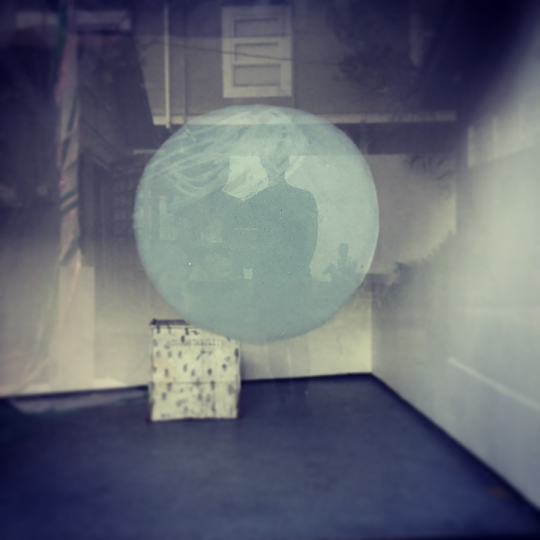
SAILOR MAS takes distinct form in the Caribbean, but really the sailor is a universal symbol. A sailor is someone who crosses water. Before he was a poet, Langston Hughes was a sailor who explored.
We were both inspired by Hughes. We discussed sexuality’s mediation through a sea of oblique encounters - be it in books, on screens, through spyglasses. For me, making a film poem fit. I wanted vast complexity relegated to a small screen in a small corner, mirroring how queer sexuality in Trinidad and Tobago is often suppressed and gazed at furtively in discrete recesses. Hughes, who visited Trinidad and had ties to this country, is the perfect symbol of how queerness is dismissed and etherised by straight power.

Also, I wanted to suggest we should think of poetic form more widely. Just as poetry works through what is withheld, so does it gain by what is absorbed. All art is poetry, Heidegger said. And performance need not be a grand gesture. In fact, it’s the supposedly smaller everyday performance via laptop screens or in quiet corners that matter. As the opening line of my poem suggests, Hughes was a performer all his life.
Finally, it felt right on the night of the event last Sunday at Alice Yard to have proximity to Adam’s stationary maypole, a reference to the Barbados landship tradition. For me, this proximity came to embody the idea of dance through negation; of impulses that could be acted upon left dangling; of horizons yet to be explored.
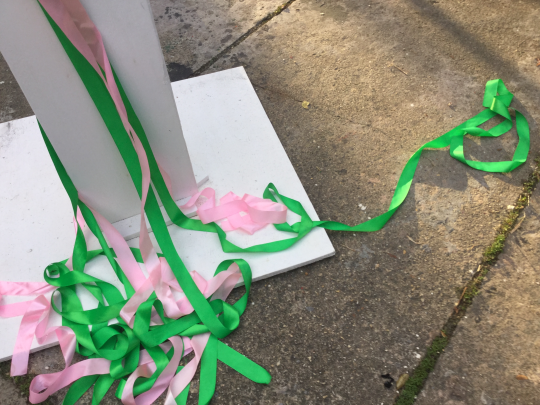
December 9, 2018
'All art is poetry’

Thank you to Paul Brookes who asked me to be a part of The Wombwell Rainbow interview series. The full interview is reproduced below.
Paul Brookes: What inspired you to write poetry?
In my teens, I wrote poems for boys. I made little chapbooks and would gift them to these baffled studs, sometimes anonymously. Poetry became me.
PB: Who introduced you to poetry?
The answer to this question depends on the answer to another question: what is poetry? I feel poetry is around us all the time even when it’s not on our radar. So it’s hard to say who introduced poetry to me. But I do remember a teacher who showed me a whole new level of analysis when it came to reading poetry. This was in secondary school. We had Mr Perkins for English. One hot afternoon he came in and told us to open our textbooks and read ‘Mass Man’ by Derek Walcott. He unpacked the poem word by word, line by line in a way that felt like discovering the world is not flat. I went deeper. I explored the National Library’s collection. I found poets like Samuel Beckett. (I encountered his poetry before his plays, which was a blessing.) The poem became not only an object but also a process. All at once so much opened.
PB: How aware were you of the dominating presence of older poets?
As a reader first and foremost, other poets, other voices, always dominate. Very early on, encountering each poet’s work was like encountering strokes of a painting, shapes of a costume, notes in a score: the form always seemed magical and meaningful. Dominating was not the word. It felt like communing. It still feels that way.
PB: What is your daily writing routine?
Someone once advised me to always listen and wait for the poem. To give it time. To let it happen. So I would say it depends on what you mean by writing. The preparation for writing – researching things, feeling things out – is as much a part of writing as typing words or making jottings in a notebook. Sometimes I latch onto a form or rhythm that works. In those instances, I might devise a routine to support the work. Other times I am haphazard. So I guess if there is a routine it is the absence of routine. Opening a space for mystery, accident, surprise.
PB: What motivates you to write?
Dancers have this thing called muscle memory. Writing feels like something that happens to me because it’s now part and parcel of me. Even when I step away, even when I cross into other terrains like dance and visual art, it remains. Heidegger believed poetry was the essence of all art and sometimes I think that’s true. In a way, then, everything motives me.
PB: What is your work ethic?
One of my favorite books is What Work Is by Phillip Levine. Something about its searching, its reportage, its drilling down and surrender to the profound questions that surround human beings and our labours beguiles me even in its uncomfortable moments. It all seems to implicitly ask: What is the work of the poet? Someone once said every poem is an ars poetica. I feel each poem makes a world while also becoming a part of it; is a setting-into-being that opens setting-into-being to new possibilities. So, to go back to your question, I guess we can look at this in terms of what work the poem does, what work the poet does, and whether there is a relationship between both things, or a separation, and what patterns or systems might shape how much I do any of these things. I am tempted to say I have a strong work ethic driven by the fact that I’m not sure how much time I have on this planet. At the same time, Locke’s insights on labour and mercantile notions of productivity don’t seem to be useful models when approaching poetry. All I can say, then, is these things called poems come, sometimes frequently sometimes infrequently. Always there is a questioning: is this a poem? Why? Why not? At which stage is the poem a poem? When someone else reads it? When I write it? When it forms, inchoate, in my body? Do I have a responsibility or relationship to it? And do only poets write poems? It’s hard to paper over all of this and describe my own processes. Even if I dream of a world where poems, which seem to do nothing, change everything.
PB: How do the writers you read when you were young influence you today?
I like to read in an engaged way. I’m experiencing what I am reading. I am also analysing what I am reading. And learning from what I am reading. So whatever I read tends to soak in. I’m very permeable that way. I am not too sure how to trace the strands of influence but it’s there. But influence is more than just a surface resemblance. It’s about process and context; particularly civic context too. Real influence might not be discernible on the page.
PB: Which writers do you admire the most and why?
Currently, I’m drawn to Heathcote Williams’ audacious investigative poetry; as well as Tom Raworth’s work. Raworth was one of the first people to have open heart surgery and someone once suggested you could sense a different kind of heartbeat pulsing through his writing, an idea I find not only beautiful but true when considering the sensibility of some of his poems.
PB: Tell me about the writing projects you have on at the moment.
In 2018 I published The City of Dreadful Night, a book-length visual poem that takes James Thomson’s poem of the same name and seeks to dialogue with it through a sequence of images. I like to think of form in poetry in a wide sense, extending beyond questions of whether a poem is a sonnet or a villanelle to include questions of medium. I’m drawn to this idea of drilling down to the essence of things using whatever is at hand. To go back to Heidegger, perhaps what he said was true, “All art is poetry”.
- from The Wombwell Rainbow.
December 2, 2018
Yes it happened right here, a spot of blood appeared and grew.—...

Yes it happened right here, a spot of blood appeared and grew.
— from ‘Scarlet Ibis Variations’, my visual poem sequence published at Burning House Press https://burninghousepress.com/…/andre-bagoo-scarlet-ibis-v…/
Thank you Paul Hawkins for selecting this piece to round off your guest editorship. Around this time last year, some of the first ibis works (heavily influenced by Broodthaers/Mallarme) were published by SJ Fowler over 3AM. Since then, sections were published in The Poetry Review, performed at Fowler’s Poem Brut and Tony Frazer’s Shearsman readings in London, turned into film poems by Soraya Moolchan and Israel Ramjohn (screened at The Poetry Society) and me (screened at the IMAX opening night of Green Screen 2018), and also made an appearance in Wretched Strangers, edited by Ágnes Lehóczky and JT Welch. To think of the germ of this idea starting with Ovid all those years ago. Onward voyagers & happy new year 2019! Xo
(O & apologies to Henri Michaux)
November 23, 2018
He had these poems within him; he rearranged his life in such a...
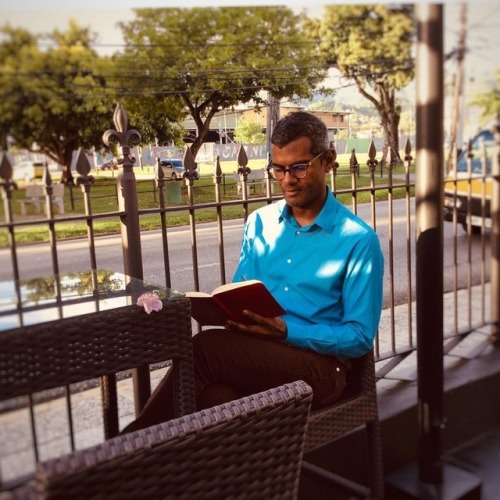
He had these poems within him; he rearranged his life in such a way to match the poems inside him longing to come out. — talking to Breanne Mc Ivor about Robert Lax, the writing life, my latest book and more in Maco People https://macopeople.com/people/andre-bagoo-for-the-love-of-language/ PHOTO BY BREANNE MC IVOR. (at Queen’s Park Savannah)
November 18, 2018
Being your slave, what should I do but tend
Upon the hours and...
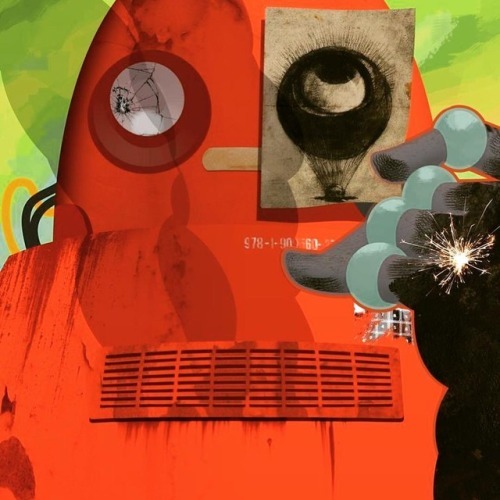
Being your slave, what should I do but tend
Upon the hours and times of your desire? – Shakespeare, Sonnet 57
My sonnet crown, ‘I was programmed into thinking I could be a poet’, appears in NO, ROBOT, NO! a book all about robots, AI, and things that go too far. Beautifully compiled designed and edited by Jon Stone and Kirsten Irving. Chaplin can’t get enough of it. #asemic #poembrut #poetry #robotics @sidekickbooks #norobotno #literature #sonnet #shakespeare #sonnetcrown
https://www.instagram.com/p/BqUvtwjgi8j/?utm_source=ig_tumblr_share&igshid=22vyu2x1jq55
September 26, 2018
‘now the black, the cut, the red
the colony dispersed by bullets...
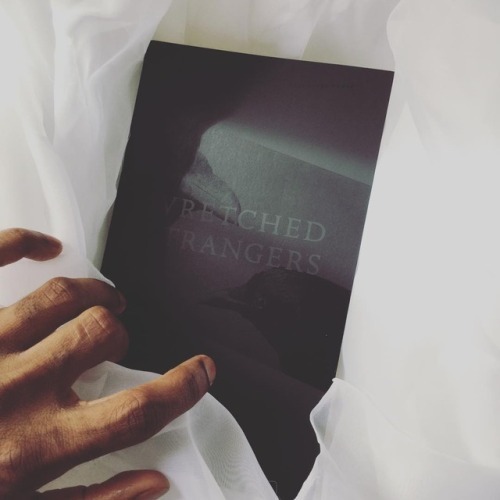
‘now the black, the cut, the red
the colony dispersed by bullets I ask whose land it is’
Just in time for Republic Day
September 16, 2018
It was a pleasure appearing on the LMC’s podcast last week...

It was a pleasure appearing on the LMC’s podcast last week discussing
August 29, 2018
This beauty arrived in the mail a few days ago. I know it’s...

This beauty arrived in the mail a few days ago. I know it’s called snail mail, but can we hurry up and invent teleporters to get gorgeous things like this to TT instantly? So pleased!
August 20, 2018
HE WROTE dozens of books, yet, in a sense, VS Naipaul spent a...
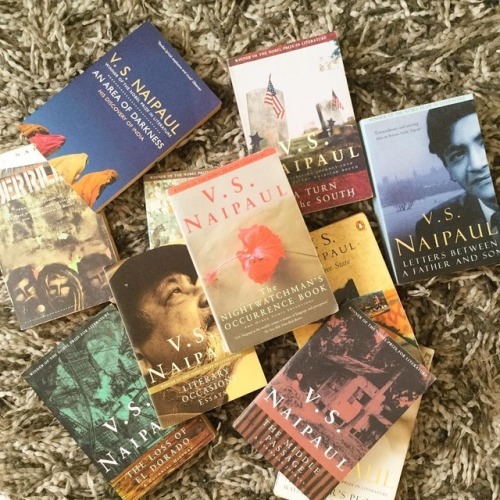
HE WROTE dozens of books, yet, in a sense, VS Naipaul spent a lifetime writing only one thing: his own story.
After the early novels, in which his keen ear for dialogue, technical mastery of prose, and talent for comedy emerges triumphantly; after the magisterial A House for Mr Biswas, in which the title character’s profound vulnerability sheds light on the fate of Trinidad as a new nation; after the novels set in London, in which he sought to prove he could write about anyone anywhere and in wintery tones too; after In a Free State, which saw him push against the margins of the novel; after the ambitious books of sex, violence and Black Power; after The Enigma of Arrival, a work that has not lost its power to confound; after the forced yet sometimes beautiful sequences towards the end of his fiction; and the turn to stunning reportage and travel writing, in which he spoke truth to power and offended in equal measure – after all of this we are left with, in effect, the most astonishing autobiography in English letters.
On August 11, on his deathbed in London, Naipaul took comfort in Tennyson’s poem Crossing the Bar, with its tide that “turns again home”. For some, the question is: which home?
The books provide the answer. They can and should be read as one. They tell a tale that always leads back to Trinidad. He remains a native son. — from my pieces on VS Naipaul in today’s Sunday Newsday, which you can find here https://newsday.co.tt/2018/08/19/the-great-books/ & on page 23 of the paper.
(at Port of Spain, Trinidad and Tobago)
https://www.instagram.com/p/BmqTeUNn4ba/?utm_source=ig_tumblr_share&igshid=18w88scsj0zh2



